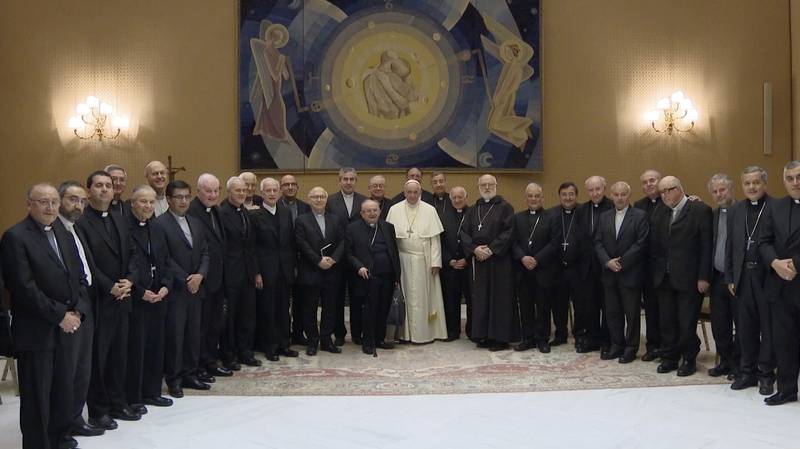
The Chilean Bishops’ Resignation—Renewed Motivation for Formation
As a Catholic priest, the attention surrounding the Chilean bishops' resignation is a source of inspiration for me to continue to commit myself to the cause of the safeguarding of minors. Jesus, during His earthly mission, took a firm stand in favor of the afflicted. In following the mission of Jesus, the Church cannot but be with the victims. Presently I am undertaking research in Managua, Nicaragua, among the (ex-) members of 'Pandilla' (street gangs), investigating their experiences of physical and sexual abuse that they had gone through during their childhood in their families. During my years of pastoral activities in Managua, I had observed that many members of the 'Pandilla' came from dysfunctional and disturbed families. This made me to think that probably they have had traumatic experiences of abuse in their families. Focusing on their traumatic experiences of abuse, one can better understand their situation and contribute to raising awareness with regard to the importance of creating a safe family atmosphere and forming people in the field of safeguarding children. Because a solid formation is the best prevention.
Child sexual abuse by the clergy has rocked the Catholic Church in the recent years, which has, on one hand, affected the Church profoundly, but at the same time has awakened a renewed involvement the matter of safeguarding, both within and outside the Church. From the very beginning, allow me to clearly say that safeguarding minors from sexual abuse, or from any kind of abuse, is the duty of each individual as a responsible member of society. Sexual abuse of a minor leaves long-lasting consequences. For example, Finkelhor and Browne (1985) identify four trauma-causing, or 'traumagenic', elements that constitute the core experience of the psychological injury inflicted on the abuse victim, namely traumatic sexualization, betrayal, stigmatization, and powerlessness. When we talk about child sexual abuse, we need to keep in mind that sexual abuse also implies sexual violence, an abuse of power, and a breach of trust (Esposito & Field, 2016). In the first place, sexual abuse is sexual violence. The abuser makes use of the child sexually, makes use of a child’s body to satisfy his/her sexual desire in an uncontrolled and irrational way. It could also be an exhibition of the power and control over the victim. Thus, it has a destructive and overwhelming impact on the child’s body. Secondly, it is an abuse of power. The abuser typically has a superior status because of his position, possibilities, physical, emotional, and economic advantage. The adult is more powerful than the child and the child is made to feel impotent and dependent. When the abuse is committed by a priest, the implications are much more traumatic and even spiritual because of the element of ‘sacredness’ attached to the person of the priest. A priest is supposed to be a ‘living image of Christ’ on earth and is addressed as ‘father’. As a result, the faith and spirituality of the abused minor are deeply touched and disturbed. They can then find it deeply disturbing to call God, ‘Father’. Finally, there is a breach of trust, especially if abuse occurs in the context of the sacrament of confession. Because of this element of trust, the parents feel safe to leave their children with a priest. Even the children themselves see in a priest, a person of trust. Thus, when a heinous act of abuse is committed by a priest, their trust is breached and they feel betrayed and deceived all the more.
In the context of the recent sexual abuse scandals in the Church, there have been many initiatives to rectify this situation. Yet, during the last apostolic visit of Pope Francis to Chile, the stand taken by the Pope with regard to the charges made against the Chilean bishop surprised many and became the target of sharp criticism. Bishop Juan Barros of the diocese of Osorno was accused of complicity in covering up sexual abuse perpetrated by the Chilean priest Fernando Karadima and protecting him. However, the Pope later realized that he had not been provided with balanced information and appointed to investigate this serious matter Archbishop Charles Scicluna of Malta, who found that members of the Chilean Church hierarchy were responsible for 'grave defects' in the handling of abuse cases. So, after a three-day discernment process with Pope Francis, thirty-one serving bishops and three retired bishops from Chile signed a letter of resignation on Friday 18 May. 'In communion with (the Pope) we want to re-establish justice and contribute to repairing the damage caused,' they wrote (BBC, 2018).
In my opinion, this unprecedented decision marks a renewed hope for those who are victims of abuse by clergy all over the world. It also shows that Church leardership is becoming ever more serious about and committed to the cause of the victims, even though there have been shortcomings and repeated mistakes. Further, it is an invitation to continue with renewed enthusiasm the efforts carried out by different sectors of the Church in safeguarding the dignity of minors and protecting them from all kinds of maltreatment. We need to pay special attention to the formation process, taking place at different levels of priesthood.
BBC, News. (2018, May 18). All Chile’s 34 bishops offer to resign. BBC News.
Esposito, C., & Field, E. (2016). Child sexual abuse, what does the research tell us: A literature review. NSW Department of Family and Community Services.
Finkelhor, D., & Browne, A. (1985). The Traumatic Impact of Child Sexual Abuse: A Conceptualization. The American Journal of Orthopsychiatry, 55, 530–541.

